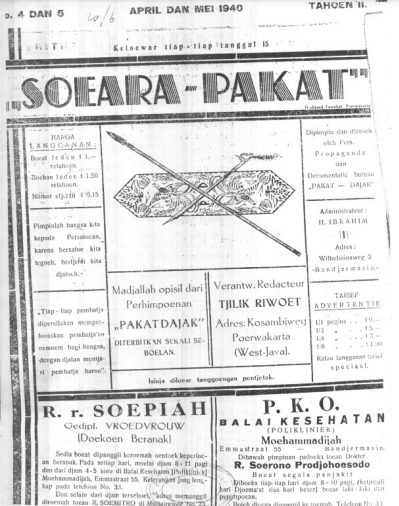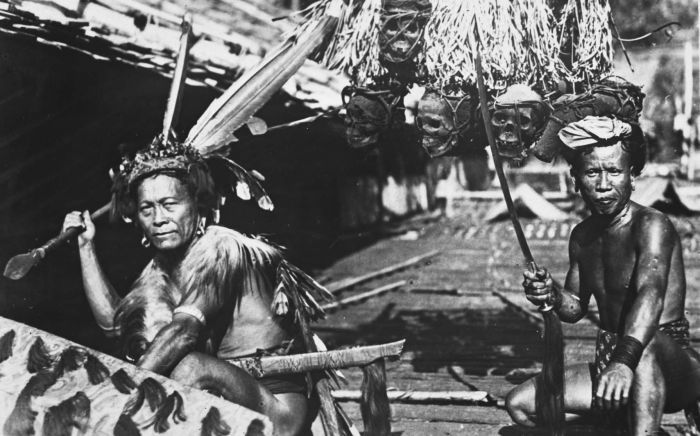|
Dayak In Politics
Dayak in politics refers to the participation of Dayaks to represent their political ideas and interests outside of their community. The movement has continued to have a profound impact on the development of Indonesia and Malaysia, especially in Kalimantan and Sarawak. Kalimantan Early movements The rise of educated Dayak intellectuals in Kalimantan during early 1900s was attributed to education given by missionary missions in the Kalimantan interior. Missionary education served as alternative for Dayak youths to Dutch formal schools that were relatively expensive and discriminative in nature. Previously, Dayaks, particularly Ngaju people, had traditional education institution known as ''Kuwu'', which focused on knowledge of tribal laws, oral traditions, and traditional medicine. This system however, was reserved for aristocrat group within the tribe known as ''Utus Gantung'' and not open for public. The ''Kuwu'' system gradually declined by 1823, as missionary activi ... [...More Info...] [...Related Items...] OR: [Wikipedia] [Google] [Baidu] |
Soetomo
Raden Soetomo (30 July 1888 – 30 May 1938) was a medical doctor, and politician in the Dutch East Indies. He was born in East Java, and went on to study medicine. While still studying, he was one of three founders of the Budi Utomo Javanese nationalist organisation. From 1919 to 1923, studied medicine at Amsterdam University and later married a Dutch woman. After returning from the Netherlands, he worked as a doctor in Sumatra and Surabaya. He also established a number of "study clubs" to raise awareness of nationalism. In 1935, he was one of the founders of the Parindra nationalist party, and led it until his death. After his death he was named a National Hero of Indonesia National Hero of Indonesia ( id, Pahlawan Nasional Indonesia) is the highest-level title awarded in Indonesia. It is posthumously given by the Government of Indonesia for actions which are deemed to be heroic, defined as "actual deeds which can b .... References {{Authority control National Heroes o ... [...More Info...] [...Related Items...] OR: [Wikipedia] [Google] [Baidu] |
Indonesian Constituent Assembly Election, 1955
Constitutional Assembly elections were held in Indonesia on 15 December 1955. The Indonesian Provisional Constitution of 1950 had provided for the establishment of a democratically elected Constitutional Assembly to draw up a permanent constitution. In April 1953 the legislature passed the election bill. The elections for the People's Representative Council were set for September 1955, with the Constitutional Assembly elections three months later. Results References * * * * {{Indonesian elections Legislative elections in Indonesia Indonesia Indonesia, officially the Republic of Indonesia, is a country in Southeast Asia and Oceania between the Indian and Pacific oceans. It consists of over 17,000 islands, including Sumatra, Java, Sulawesi, and parts of Borneo and New Guine ... 1955 in Indonesia Sukarno Liberal democracy period in Indonesia 1955-12 election Election and referendum articles with incomplete results ... [...More Info...] [...Related Items...] OR: [Wikipedia] [Google] [Baidu] |
Darul Islam Rebellion
The Darul Islam rebellion was a war waged between 1949 and 1962 by the Islamic State of Indonesia, commonly known as Darul Islam, to establish an Islamic state in Indonesia. The rebellion began when Sekarmadji Maridjan Kartosuwirjo, a former Indonesian nationalist who refused to recognize the new Republic of Indonesia. Instead, he proclaimed the establishment of the Islamic State of Indonesia on 7 August 1949. Kartosuwirjo led Darul Islam's war against the Indonesian government for 13 years before he was captured by the Indonesian Army in 1962 and executed in 1965. After he was captured, Kartosuwirjo issued orders for his followers to surrender, although some pockets of resistance remained in Southeast Sulawesi until 1965. Background After the Japanese surrendered in 1945, ending World War II, Sukarno proclaimed the independence of Indonesia on 17 August 1945, and became the nation's first president. While the Japanese soon left the former Dutch East Indies, the Dutch returned ... [...More Info...] [...Related Items...] OR: [Wikipedia] [Google] [Baidu] |
Mandau Talawang Pancasila
Mandau Talawang Pancasila (GMTPs, Indonesian: ''Gerakan Mandau Talawang Pancasila'') is a paramilitary organization, based mostly within the Indonesian provinces of Central Kalimantan and West Kalimantan. History The organization was founded in November 1953 as "Telabang Pancasila Dayak Sector", and played an active role in opposing the Darul Islam rebellion in South Kalimantan as well as pushing for the creation of a Dayak-dominated province in central Kalimantan. The name of the organization refers to the ''mandau'', a traditional Dayak weapon, the ''talawang'', a shield, and Pancasila, the state ideology of Indonesia. The organization retains the support of Indonesian military and local government. After the recognition of Indonesian independence in 1949, it was planned that Kalimantan was to be split up into several provinces to simplify governance in the region. However, regionalism in the region arose from the dissatisfaction of the interior Dayak population to provinc ... [...More Info...] [...Related Items...] OR: [Wikipedia] [Google] [Baidu] |
Proclamation Of Indonesian Independence
The Proclamation of Indonesian Independence ( id, Proklamasi Kemerdekaan Indonesia, or simply ''Proklamasi'') was read at 10:00 on Friday, 17 August 1945 in Jakarta. The declaration marked the start of the diplomatic and armed resistance of the Indonesian National Revolution, fighting against the forces of the Netherlands and pro-Dutch civilians, until the latter officially acknowledged Indonesia's independence in 1949. The document was signed by Sukarno (who signed his name "Soekarno" using the Van Ophuijsen orthography) and Mohammad Hatta, who were appointed president and vice-president respectively the following day. The date of the Proclamation of Indonesian Independence was made a public holiday by a government decree issued on 18 June 1946. Background The beginnings of the independence movement In 1918, the Dutch authorities in the Dutch East Indies established a partly-elected People's Council, the ''Volksraad'', which for the first time gave Indonesian nationalists a ... [...More Info...] [...Related Items...] OR: [Wikipedia] [Google] [Baidu] |
Dayak Desa War
The Dayak Desa War or Majang Desa War was an armed uprising by the Dayak Desa tribe, and later Indonesian nationalists, in West Kalimantan against the Japanese Empire and the Dutch East Indies during World War II. The war was initially caused by the local population's opposition against the ''rōmusha'' system and disappointment with Japanese occupation (which was initially thought to be liberation from European rule). In the initial phase of Japanese occupation, several Japanese companies entered the region to gain natural resources in order to support the Japanese war effort in the Pacific. Occupying Japanese forced locals to work for free for these companies, mainly in coal mining and timber production. After that, a Japanese foreman working in a company wanted to marry the daughter of Pang Linggan, a respected Dayak chief in the region, which caused more tension between locals and the Japanese. Dayak tribes in the region initiated ''mangkuk merah'' (red bowl) ritual, as a sig ... [...More Info...] [...Related Items...] OR: [Wikipedia] [Google] [Baidu] |
Genocide
Genocide is the intentional destruction of a people—usually defined as an ethnic, national, racial, or religious group—in whole or in part. Raphael Lemkin coined the term in 1944, combining the Greek word (, "race, people") with the Latin suffix ("act of killing").. In 1948, the United Nations Genocide Convention defined genocide as any of five "acts committed with intent to destroy, in whole or in part, a national, ethnical, racial or religious group." These five acts were: killing members of the group, causing them serious bodily or mental harm, imposing living conditions intended to destroy the group, preventing births, and forcibly transferring children out of the group. Victims are targeted because of their real or perceived membership of a group, not randomly. The Political Instability Task Force estimated that 43 genocides occurred between 1956 and 2016, resulting in about 50 million deaths. The UNHCR estimated that a further 50 million had been displac ... [...More Info...] [...Related Items...] OR: [Wikipedia] [Google] [Baidu] |
Sukarno
Sukarno). (; born Koesno Sosrodihardjo, ; 6 June 1901 – 21 June 1970) was an Indonesian statesman, orator, revolutionary, and nationalist who was the first president of Indonesia, serving from 1945 to 1967. Sukarno was the leader of the Indonesian struggle for independence from the Dutch colonialists. He was a prominent leader of Indonesia's nationalist movement during the colonial period and spent over a decade under Dutch detention until released by the invading Japanese forces in World War II. Sukarno and his fellow nationalists collaborated to garner support for the Japanese war effort from the population, in exchange for Japanese aid in spreading nationalist ideas. Upon Japanese surrender, Sukarno and Mohammad Hatta declared Indonesian independence on 17 August 1945, and Sukarno was appointed president. He led the Indonesian resistance to Dutch re-colonisation efforts via diplomatic and military means until the Dutch recognition of Indonesian independence ... [...More Info...] [...Related Items...] OR: [Wikipedia] [Google] [Baidu] |
Guided Democracy In Indonesia
Guided Democracy () was the political system in place in Indonesia from 1959 until the New Order began in 1966. It was the brainchild of President Sukarno, and was an attempt to bring about political stability. Sukarno believed that the parliamentarian system implemented during the liberal democracy period in Indonesia was ineffective due to its divisive political situation at that time. Instead, he sought a system based on the traditional village system of discussion and consensus, which occurred under the guidance of village elders. With the declaration of martial law and the introduction of this system, Indonesia returned to the presidential system and Sukarno became the head of government again. Sukarno proposed a threefold blend of (nationalism), (religion), and (communism) into a co-operative Nas-A-Kom or Nasakom governmental concept. This was intended to satisfy the four main factions in Indonesian politics—the army, the secular nationalists, Islamic groups, and ... [...More Info...] [...Related Items...] OR: [Wikipedia] [Google] [Baidu] |
West Borneo
West Kalimantan ( id, Kalimantan Barat) is a province of Indonesia. It is one of five Indonesian provinces comprising Kalimantan, the Indonesian part of the island of Borneo. Its capital city is Pontianak. The province has an area of 147,307 km2, and had a population of 4,395,983 at the 2010 CensusBiro Pusat Statistik, Jakarta, 2011. and 5,414,390 at the 2020 Census. Ethnic groups include the Dayak, Malay, Chinese, Javanese, Bugis, and Madurese. The borders of West Kalimantan roughly trace the mountain ranges surrounding the vast watershed of the Kapuas River, which drains most of the province. The province shares land borders with Central Kalimantan to the southeast, East Kalimantan to the east, and the Malaysian territory of Sarawak to the north. West Kalimantan is an area that could be dubbed "The Province of a Thousand Rivers". The nickname is aligned with the geographical conditions that have hundreds of large and small rivers that which can be and often are ... [...More Info...] [...Related Items...] OR: [Wikipedia] [Google] [Baidu] |



